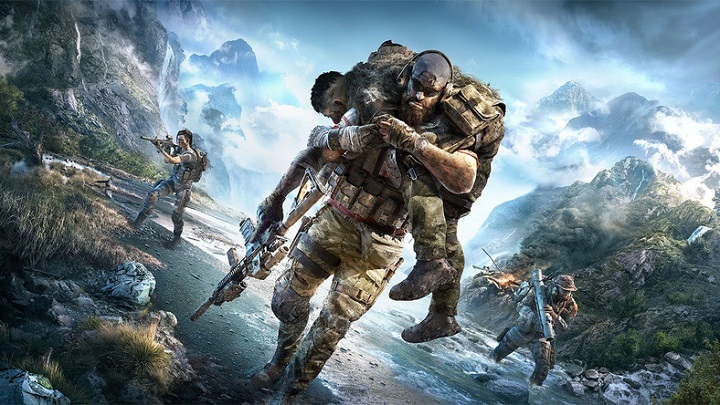The Division 2 and Breakpoint Flop; Ubisoft Delays New Games
At a closed press conference, Ubisoft informed about the delay of the upcoming AAA titles, including Watch Dogs Legion. The reasons for this are the unsatisfactory sales results of Tom Clancy's The Division 2 and Tom Clancy's Ghost Recon: Breakpoint and the reduction of financial targets for this year.

This is not the end of unpleasant information about shifts in upcoming AAA productions. A few hours ago we learned that the release of The Last of Us: Part II and Ghost of Tsushima will be delayed, and now media report that the upcoming big Ubisoft titles will also be delayed. Reason? "Commercial failure of Tom Clancy's The Division 2 and Tom Clancy's Ghost Recon: Breakpoint."
The source of this information is Chloé Woitier, journalist at the French daily Le Figaro newspaper who, , reported on what was presented at the closed press Ubisoft conference through her Twitter account. First of all, we learn from it that the company lowered its annual financial targets (from EUR 2.1 billion to EUR 1.4 billion) due to the disastrous sales results of Ghost Recon: Breakpoint.
It is precisely because of this that Ubisoft decided to delay the releases of the upcoming titles - Watch Dogs: Legion, Tom Clancy's Rainbow Six Quarantine and Gods & Monsters - to the next financial year, which will last from April 2020 to the end of March 2021. However, Skull & Bones will appear only after March 2021. Developers immediately specified that Watch Dogs and Gods & Monsters will be released in the second half of 2020.
What's more, it turned out that the poor sales of The Division 2 also was the reason for lowering the financial targets for this year and delaying the releases of the latest games.
In addition, in a statement by the co-founder and CEO of Ubisoft, Yves Guillemot, we can read that the French publisher admits that the company has not used the potential of the last two games. As reasons for Breakpoint's failure he mentioned, among other things, poor implementation of innovative elements and insufficient number of factors distinguishing the game's internal features. Developers apparently don't see the problem with microtransactions that don't appeal to the players.
- Project Gone, Ubisoft's Tactical Military Game About Complexities, Is Probably New Ghost Recon (Rumor)
- Ghost Recon Breakpoint different editions. Which one should you buy on sale?
- Ubisoft raises the stakes in the second year of Skull and Bones. Game is developing at its best, although the numbers on Steam aren't optimistic
0

Author: Paul Wozniak
Part of the editorial team since 2019, he started as a news writer and now works mostly on video content. Currently, he is mainly interested in RPG, soulslike and metroidvania games, but he has also devoted a large part of his gaming life to multiplayer. In games, he mainly values complex character development mechanics and freedom of action, and tries to look at the covered titles from different perspectives. He has also been running his YouTube channel since 2023.
Latest News
- End of remote work and 60 hours a week. Demo of Naughty Dog's new game was born amid a crunch atmosphere
- She's the new Lara Croft, but she still lives in fear. Trauma after Perfect Dark changed the actress' approach to the industry
- „A lot has become lost in translation.” Swen Vincke suggests that the scandal surrounding Divinity is a big misunderstanding
- Stuck in development limbo for years, ARK 2 is now planned for 2028
- Few people know about it, but it's an RPG mixing Dark Souls and NieR that has received excellent reviews on Steam, and its first DLC will be released soon


